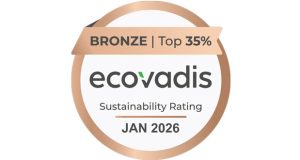 Joel Wille, Senior Product and Innovation Manager at Zip Water, on how sustainability and wellbeing are combined by ensuring staff have access to high-quality drinking water
Joel Wille, Senior Product and Innovation Manager at Zip Water, on how sustainability and wellbeing are combined by ensuring staff have access to high-quality drinking water
Facilities managers are no longer just concerned with meeting safety and compliance targets but are driven to deliver healthier, more sustainable workplaces that support wellbeing, improve staff retention and help meet Environmental, Social, and Governance (ESG) goals.
While the COVID-19 pandemic initially spurred a shift away from single-use plastics, that progress proved short-lived. Recent reports indicate a resurgence in levels of plastic waste, slowing progress towards a circular economy a key principle for reducing costs and driving operational efficiency.
One effective yet often overlooked strategy to reverse this trend is by tackling waste through the introduction of innovative drinking water systems, which can offer facilities managers a practical way of meeting sustainability, wellbeing and financial targets, all with one strategic change.
PLASTIC POST-PANDEMIC
Plastic bottles remain one of the most significant contributors to plastic waste, with an estimated 500 billion used globally each year. Despite their ubiquity, these bottles take up to 450 years to degrade and alarmingly, around 90 per cent are never recycled. Since the invention of plastic in 1907, humanity has generated approximately 6.3 billion metric tonnes of plastic waste, of which only nine per cent has been recycled. The remainder ends up in landfills or, worse, in our natural environment.
The COVID-19 pandemic accelerated this crisis. While the initial shift away from single-use plastics suggested progress, more recent data shows that plastic consumption remains higher than pre-pandemic levels. This increase has been largely driven by perceived hygiene concerns, with many turning to disposable plastic as a ‘safer’ alternative.
Compounding this issue was the reduced access to refill stations during lockdowns. With fewer retailers and hospitality venues open, convenient alternatives to bottled water became harder to access.
Research into the intention-behaviour gap reveals a key insight: while many people express a desire to be more sustainable, they often fall short in practice. This highlights the need not only for cultural change, but also for greater structural support.
The challenge? Many organisations have yet to return to their pre-pandemic momentum in reducing plastic waste. Now is the time to regain ground and move forward.
MEETING YOUR ESG GOALS
Delivering on ESG goals requires more than just policies; it demands visible, actionable change within the built environment. This is why installing bottle-free drinking water systems isn’t just a green tick-box, it supports both the environmental and social pillars of sustainability.
Eliminating plastic bottles cuts carbon emissions associated with production and transport and helps organisations align with circular economy principles and net zero ambitions. Encouraging staff to switch to reusable alternatives can prevent hundreds of plastic bottles from entering the waste stream each year, without sacrificing convenience or hygiene.
But the impact extends far beyond emissions. On the social front, visibly sustainable practices, like filtered water dispensers and plastic-free hydration stations, can boost morale, enhance organisational reputation, and reinforce a shared culture of care and responsibility. These are key outcomes in meeting the “S” in ESG, especially in sectors like education, healthcare, and corporate offices, where wellbeing and values alignment are increasingly scrutinised.
A wide range of energy-efficient drinking water solutions eliminate the need for single-use plastic bottles while promoting hydration and healthier habits. From integrated filtered water taps to chilled and sparkling dispensers, these systems make it easy for users to refill reusable bottles.
When combined with the rise of reusable bottles, these solutions help organisations build sustainable behaviours into everyday routines. In doing so, facilities managers not only reduce environmental impact, but foster wellbeing and demonstrate genuine ESG leadership.





